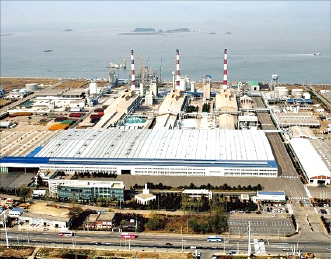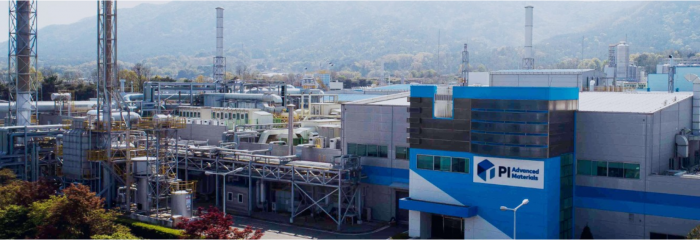How Glenwood made twofold return from HanGlas without dividends
This week, HanGlas joined the list of lucrative exit deals for eight-year-old Glenwood Private Equity
By Apr 01, 2022 (Gmt+09:00)
LG Chem to sell water filter business to Glenwood PE for $692 million


KT&G eyes overseas M&A after rejecting activist fund's offer


Kyobo Life poised to buy Japan’s SBI Group-owned savings bank


StockX in merger talks with Naver’s online reseller Kream


Meritz backs half of ex-manager’s $210 mn hedge fund



Seoul based-Glenwood Private Equity, founded in 2014, has been quietly building its presence in the South Korean M&A market, chasing assets deemed non-core by big companies and neglected by its bigger PE rivals.
This week, the country's No. 2 glassmaker HanGlas Co. was added to the list of Glenwood's lucrative exit deals, tipped to generate almost double its investment in two and a half years.
HanGlas, short for Hanguk Glass Industry Co., is one of the key acquisitions for the PE firm's first blind pool fund that raised 450 billion won in 2018 and executed a total of 2 trillion won investments.
Led by co-founder and CEO Lee Sang Ho, Glenwood has kicked off the divestment process for its first blind fund, putting PI Advanced Materials Co., the world's largest polyimide (PI) film manufacturer, on the market as well.
Established in 1957, HanGlas takes a 20% share of the domestic glass market, of which sector leader KCC Glass Corp. controls about half. Hit by the 1997-98 Asian financial crisis, HanGlas was taken over by French construction materials company Saint-Gobain SA in 2005.
NO DIVIDENDS, REINVESTMENT
Since Glenwood PE took over HanGlas for 310 billion won in 2019, it had channeled retained earnings into facility investments to boost long-term growth, instead of paying dividends.
It spent a total of 130 billion won in building two new blast furnaces in HanGlas' plant in Gunsan, North Jeolla Province and setting up eco-friendly facilities to cut carbon dioxide emissions by more than 30%.
“Bold reinvestments lead to smooth exits,” Chan Jung, Glenwood PE’s chief operating officer and co-founder, told The Korea Economic Daily’s capital markets news provider Market Insight.
“Our aggressive facility investments will ease the investment burden for its new owner. They can enjoy synergy effects without making additional investments.”
In the second year of its acquisition, HanGlass turned to an operating profit in 2020. Its operating profit soared nearly sevenfold to 37 billion won in 2021, versus 5.5 billion won the year previous. Sales grew to 301 billion won from 240 billion won during the period.
The deal marked the first significant acquisition for LX International, since it was hived off from LG Group last year along with three other affiliates to form LX Group.
LX Internatoinal, a company of industrial materials and logistics business, expects the acquisition to further diversify into eco-friendly businesses and cut material costs for LX Hausys Ltd., a building materials affiliate.
While transformed into an energy-saving and eco-friendly glassmaker, HanGlas is also expected to see growing demand for automotive glass in line with the electric vehicle market growth.

With $1.8 billion in assets under management, Glenwood specializes in carve-out deals and targets non-core units or business divisions from established companies.
In the first year of acquisition, Glenwood implements three-stage customized post-merger integration strategy to transform the once non-core business unit into an independent company with growth potential.
In detail, it changes the vision of the business; carries out business reorganization and name change; and sets up a key performance indicator for new objectives.
Its first blind fund has reported an internal rate of return close to 40% on average. Of its investments, HanGlas, PI Advanced and beauty product chain CJ Olive Young all posted their record earnings last year.
CEO Lee, an ex-Goldman Sachs investment banker with stints in New York, Hong Kong and Seoul, is the second son of former Samsung Electronics vice chairman and CEO Lee Hak-soo. His father had long served as a top secretary for the late Samsung Group Chairman Lee Kun-hee.
Junior Lee's elder brother Lee Sanghoon is leading the South Korean operations of TPG.
Based on CEO Lee's five-year experience at Samsung Electronics' corporate finance team, Glenwood shows his competitive edge in corporate carve-out deals.
In its early years in business, the PE house divested of home appliance maker Tongyang Magic Co. and Lafarge Halla Cement Co. for hefty profits in two years and one year, respectively.
Its 54% stake in PI Advanced Materials, up for sale, is expected to bring in over 1 trillion won, around double the PE firm's investment.
"We're looking for businesses with entry barriers, which are now non-core assets of Group A, but can be a core asset for Group B," said Glenwood's Jung.
Separately, Glenwood is planning to buy a 49% stake in Hanwha Solutions Corp.'s advanced materials business to be split off for around $500 million, according to sources with knowledge of the matter.
Write to Chae-Yeon Kim and Si-Eun Park at why@hankyung.com
Yeonhee Kim edited this article
-
 Corporate restructuringHanwha Solutions to raise $491 mn with materials unit split-off
Corporate restructuringHanwha Solutions to raise $491 mn with materials unit split-offMar 29, 2022 (Gmt+09:00)
2 Min read -
 Mergers & AcquisitionsPI Advanced up for sale in deal estimated at $1 bn
Mergers & AcquisitionsPI Advanced up for sale in deal estimated at $1 bnFeb 15, 2022 (Gmt+09:00)
1 Min read -
 Mergers & AcquisitionsLX Group to buy glassmaker from Glenwood PE
Mergers & AcquisitionsLX Group to buy glassmaker from Glenwood PEDec 24, 2021 (Gmt+09:00)
2 Min read -
 Mergers & AcquisitionsGlenwood to join GS' acquisition of S&I E&C
Mergers & AcquisitionsGlenwood to join GS' acquisition of S&I E&CNov 18, 2021 (Gmt+09:00)
1 Min read -
 Mergers & AcquisitionsGlenwood PE to acquire minority stake in Korea's largest beauty chain
Mergers & AcquisitionsGlenwood PE to acquire minority stake in Korea's largest beauty chainDec 23, 2020 (Gmt+09:00)
2 Min read


